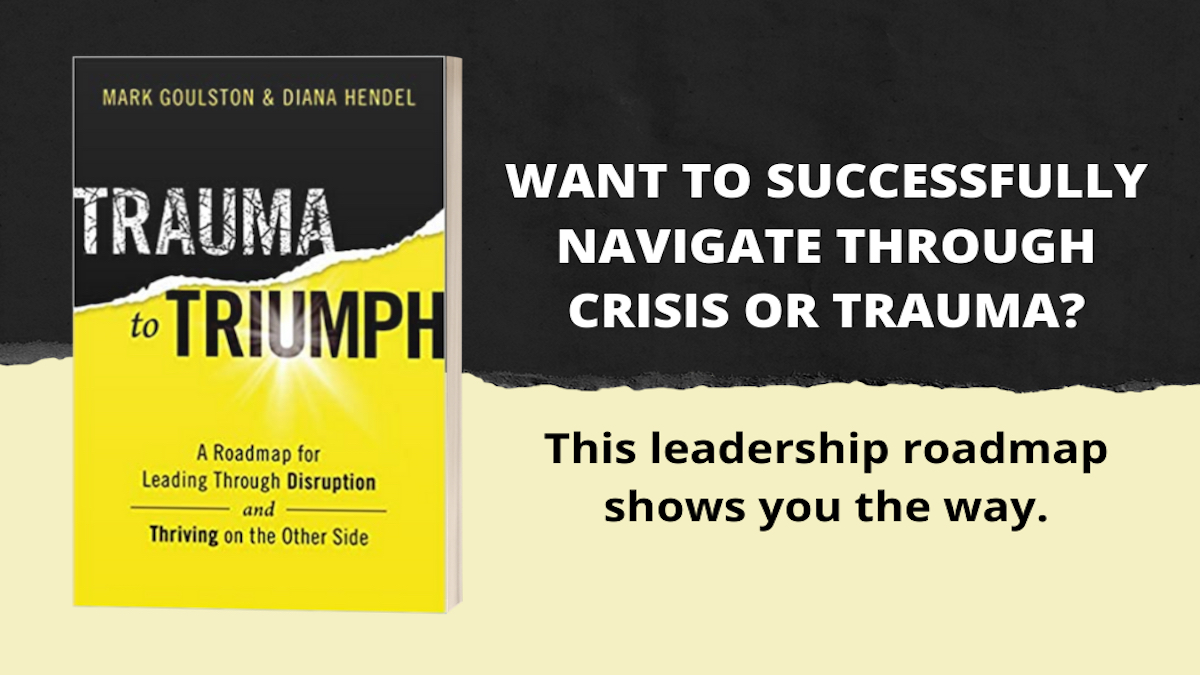By Diana Hendel, PharmD, and Mark Goulston, MD, authors of Trauma to Triumph: A Roadmap for Leading Through Disruption (and Thriving on the Other Side)
We live in a time of massive, ongoing change. The frequency, intensity, and duration of the crises and disruptions we face have been ramped up. We are no longer forging through occasional whitewater, but navigating an ongoing VUCA world—one where Volatility, Uncertainty, Complexity, and Ambiguity reign supreme.
Yet, despite this rather daunting reality, many organizations have no plan in place for what to do when a crisis hits. (And no, calling 911 or ordering an evacuation of the building is not enough!)
Without a well-planned process to lead people through a crisis, there will be chaos and confusion, and your company will suffer in various ways. In many cases, there may be long-term trauma, which is damaging on both individual and organizational levels.
Creating a rapid response process (RRP) will help you quickly and immediately respond to any kind of crisis, whether it’s a pandemic, workplace violence, a scandal, an episode of sexual harassment, or something else. (Traumatic events take many forms.)
Having a standardized, pre-planned approach before a crisis occurs can make a huge difference in how your company experiences it. Once it happens, emotions will run rampant, and the more uncertainty there is, the more emotional things will get. A plan made up of strong processes and systems will allow you to respond rather than react.
Here’s a quick overview of how to put an RRP in place:
Gather your rapid response team. Appoint people to this team before a crisis happens and make sure they know their respective roles. It should include all senior leaders and leaders of key functions such as operations/logistics, security, finance, HR, communications/PR, facilities, etc.
Allow the leader in charge to delegate. You need a central commander to manage response activities such as assigning personnel, deploying equipment, obtaining additional resources, etc. This leader must be fully present, visible, and available in the heat of crisis.
Have the team report to the command center. This is a pre-determined location (physical and/or virtual) for monitoring and reacting to events. You should also select a code word that puts the rapid response process into action. Some organizations use “Code Rapid Response” or “Code Blue” as theirs.
Gather relevant information. In a crisis, it’s critical to centralize information, facts, and data. What’s known? What isn’t known? The goal is to organize and coordinate response activities, ensuring that the most pressing needs are met and that resources are properly allocated.
Promote a unifying message. It is vital to deliberately shape and disseminate a message of unity. Make sure your message is one of “we are all in it together.” This helps people transcend the impulse to split into factions.
Remember that practice makes perfect. It’s not enough to have a plan in place; you’ve got to make sure it stays fresh in the minds of employees and leaders alike. Include the RRP in your orientation process and periodically go over it to hardwire emergency concepts in advance. When a disruptive event occurs (and it is truly a matter of when, not if), you will be ready to take decisive action that minimizes the fallout.


